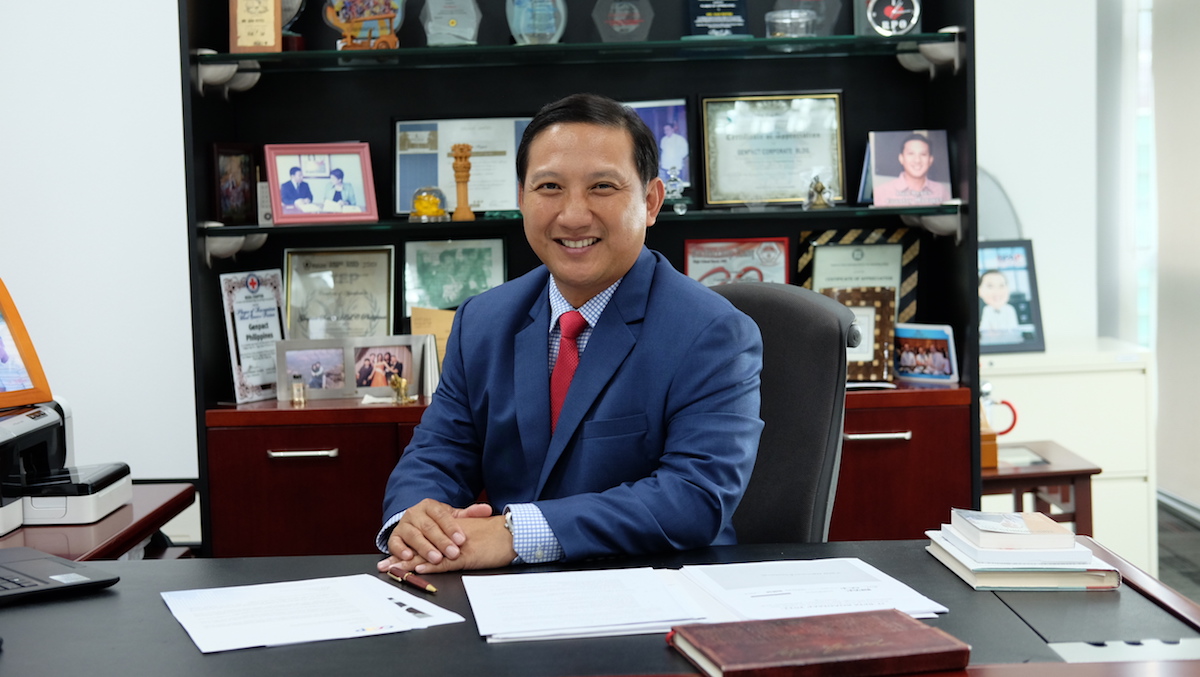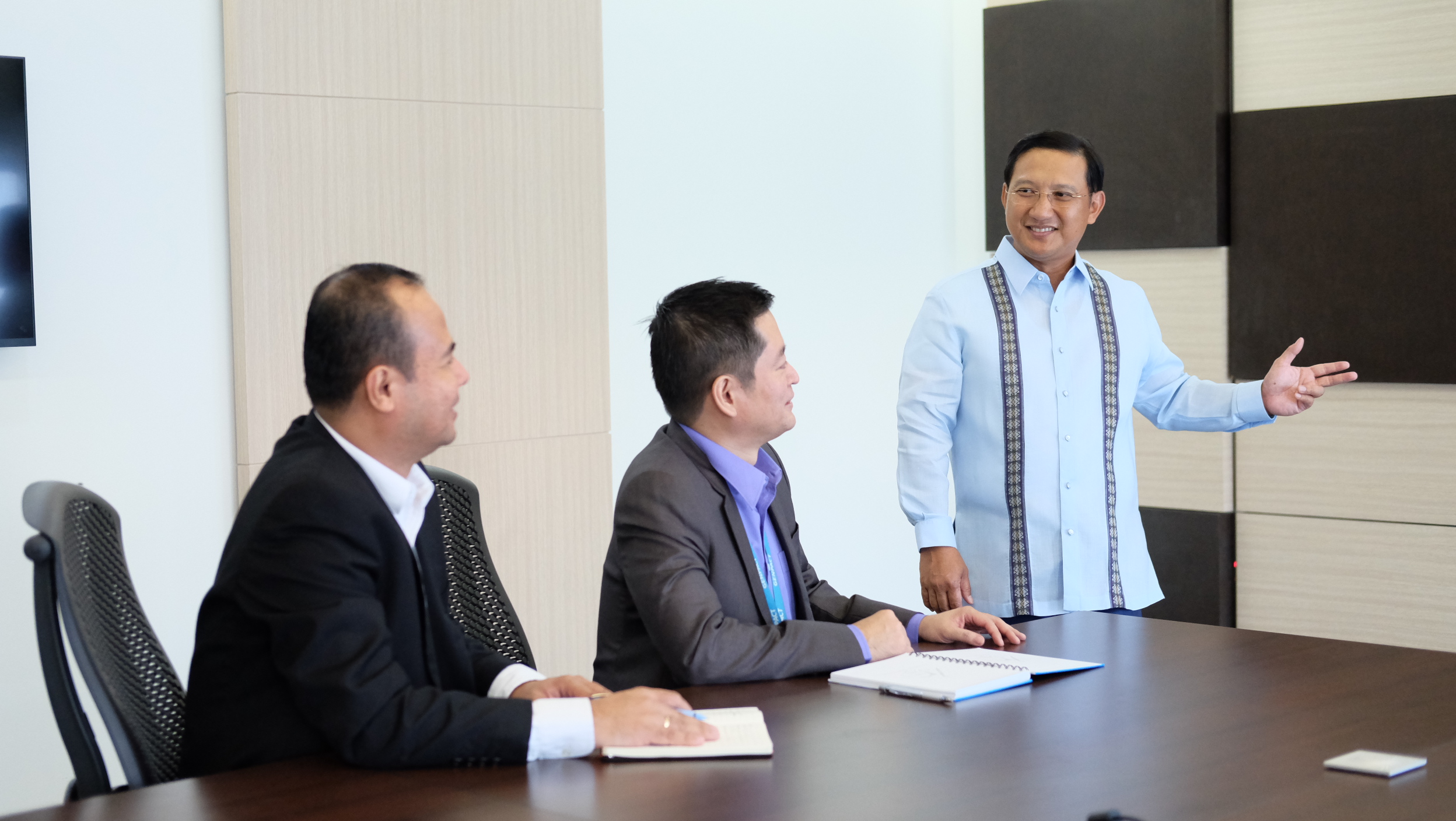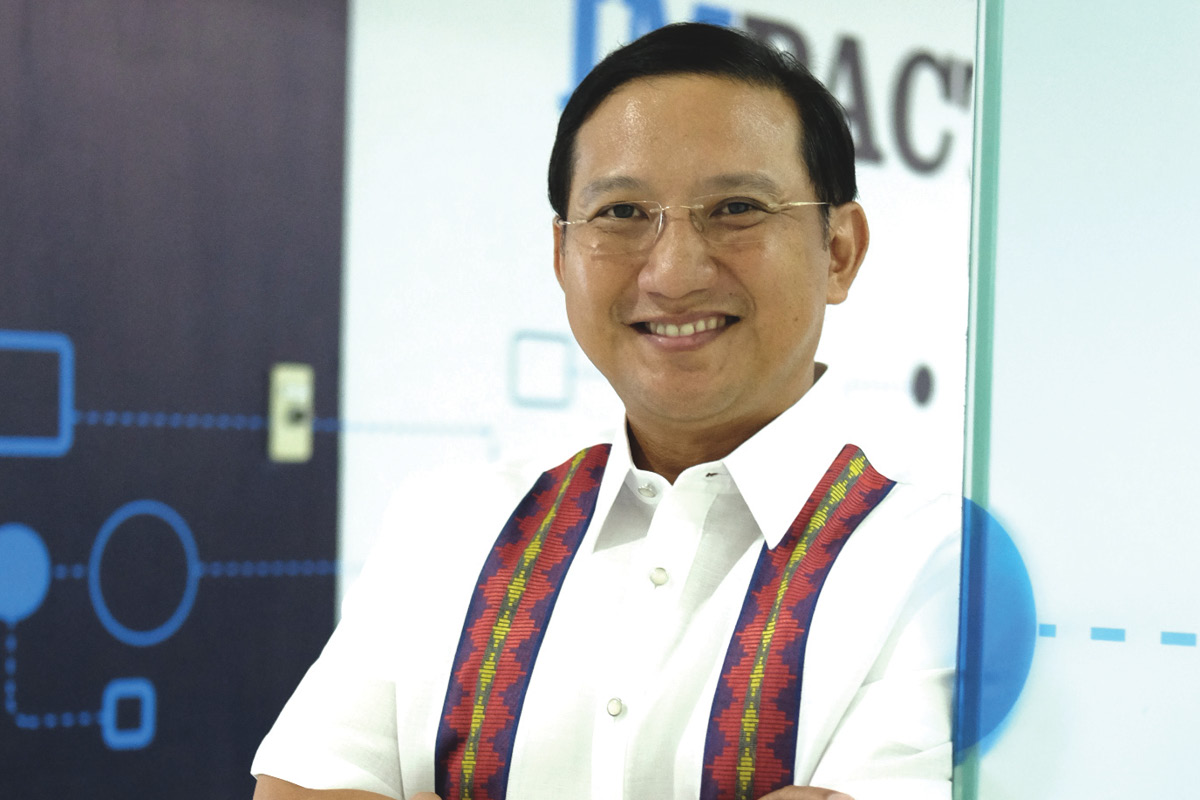Dan Reyes rose through the Philippine education system to become a revered global business leader. In October, this was acknowledged when he was presented with an Outstanding Leaders in Asia award at a ceremony in Singapore. Now his homeland is benefiting from the success he has inspired at Genpact as the company’s long-term country manager. When The CEO Magazine sits down with Dan, he shares his own journey, the growth of Genpact, and his strategies to promote talent within the Filipino business sector.
The CEO Magazine: You completed all your education in the Philippines; it didn’t cross your mind to study abroad?
Dan: I was fortunate to be raised in the southern part of Metro Manila, in a nice middle-class family environment. My father worked for a multinational company from Sweden, so my three siblings and I were put through some of the best schools in the Philippines.
I went to San Beda College and then De La Salle University, where I completed a Bachelor of Science in Computer Studies. I never really felt the need to study elsewhere, especially once I landed a job with Fujitsu straight out of university.
Why was Fujitsu an important step in your career?
It was my aspiration to work for a multinational company, particularly a Japanese company, because I wanted to expose myself to the disciplined culture of Japan. I wanted to join a big technology company, and Fujitsu was at the forefront of innovation.

I held various positions in sales and marketing, as well as product development, and I was lucky enough to be posted to the headquarters in Tokyo for a year as the marketing head for South East Asia, looking after our airline automation products.
It was certainly an eye-opener, and it gave me many ideas in terms of what could be done here in the Philippines, what we could apply from a business discipline standpoint, and how we could encourage innovativeness in the things we do.
After your move to Australian laser-printing and mail-processing company Salmat, which had telcommunications clients, you came up with a concept that attracted the interest of a Filipino heavy-hitter.
Salmat established a joint venture with Jardine Matheson, and they asked us to develop a business plan for a service that was not in any way related to the services we currently offered our clients. I came up with the outsourced call centre concept, which the owners of Salmat liked very much.
They said that if I could find a partner in the Philippines, they would provide 50 per cent of the initial capital investment. And lo and behold, I was able to convince PLDT, which is the largest telephone company in the Philippines, to invest the other half.
That started our foray into the outsourced call centre market, which at the time was called Contact World. PLDT later sold its shares and we got a partner in the US called ServiceZone, which eventually led to it becoming ClientLogic. We grew that company to 6,000 people here in the Philippines, then ClientLogic acquired Sitel, and we grew Sitel to about 13,000 people in the Philippines.
Your career was going from strength to strength. Why did you leave at that point to become country manager of Genpact Philippines in 2009?
What essentially attracted me to Genpact is that it’s a full-service IT–BPO [business process outsourcing] company, and I wanted to be involved with a company that had a wider portfolio of services, which is very much aligned to my advocacy as an active member of the IT and Business Process Association of the Philippines [IBPAP].
Our objective is to grow the IT–BPO industry, so being a part of an organisation that provides a whole spectrum of services within the IT–BPO space was a good incentive: I could be an integral part of the growth projections that they have here in the Philippines. When I first came on board, we only had contact centre services in the collections and customer service space.
What new services have you invested in since taking the top job?
We were able to expand that service portfolio to include end-user computing or technical support, and other services such as finance and accounting, and human resource outsourcing. Later, by acquiring the company Headstrong, we added IT services.

That includes application development, maintenance and quality control. We are looking at eventually being able to provide analytics in the Philippines, and expanding to not only the banking financial services verticals but also other industries such as high-tech consumer
data growth, life sciences, retail and industrial manufacturing.
You mentioned that you’re a member of IBPAP. The development of the Philippines is clearly a driving motivator for you personally, isn’t it?
Absolutely! I’m a believer in the Philippines, and a believer in Filipino talent. I wanted
to bring best practices and apply them to the environment in the Philippines, as well
as my own.
That has really been a part of my objective: to participate in the development of products and services that can elevate the Philippines as a world-class service provider – hence my passion to participate in the IT industry and in the development of the IT–BPO industry, to ensure we can provide world-class services and become thought leaders in this space.
Is there more competition now because of the growth in the Filipino IT–BPO industry?
Yes. It is quite a busy industry now. Just to give you a bit of background, when
I started in the industry in the late 90s there were probably only 2,000 employees in our industry. Now there are about 1.2 million direct employees.
You can imagine the hyper growth that the industry has experienced over the past 18 years, and the type of competition that has developed because of that. So, being able to attract and retain talent has become more important than ever.
You are currently upskilling your staff and encouraging personal growth. Have you introduced those initiatives to make Genpact more appealing to potential talent?
Well, it certainly doesn’t hurt. But it’s also the Genpact philosophy that we grow when our people grow, and that ties in well with my desire to strengthen the Filipino workforce. We’re probably the only IT–BPO company in the Philippines to offer an in-house MBA program. We have partnered with Ateneo de Manila University to provide it, and we’ve already had 25 graduates complete the two-and-a-half-year course.
Moreover, we have global leadership and development programs that are designed for our managers to cross into other operational units within the company. This facilitates collaboration across the board and enhances the skills of our leaders.
I think another key advantage Genpact has is that it was once a part of GE [General Electric]. Because of that heritage, we keep the Lean Six Sigma philosophy at the forefront of our culture. So we have a focus on quality, on continuous improvement, and on looking at ways and means that we can create business impact for our clients.
How would you describe your leadership style?
I think it has evolved from an objective-based type of management to a more collegial type of management, in that I focus largely on the development of other people. I pride myself on being able to encourage innovation, and to attract people who are not afraid to strike out and fail fast, and who will remedy their mistakes as soon as possible.
I pride myself on being able to encourage innovation, and to attract people who are not afraid to strike out and fail fast, and who will remedy their mistakes as soon
as possible.
I am building an ecosystem within the company in which everyone understands what the overall objective is, and will collaborate to meet that objective.
What is the message from the CEO of Genpact, NV ‘Tiger’ Tyagarajan?
I talked about continuous improvement earlier. Our global CEO is taking this further: he is encouraging us to become curious again. We are all being challenged to ask ‘Why?’ – to keep asking questions, to find out how things are done, and then find solutions for how they can be done better.
The aim is to continuously push the envelope as far as our business is concerned. This directly relates to our customers too; we need to be putting ourselves in our customers’ shoes and asking how we can best serve them.



